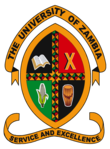Food-borne diseases (FBD) cause great human suffering and significant economic losses. Dangerous pathogens and contaminants in food are on the increase as trade, travel and tourism grow. Globally, the frequency of emerging and re-emerging diseases and food safety threats, and their impact on human health have increased over recent decades. Food safety, therefore, is critical to the safeguarding of public health. As a result, governments all over the world are intensifying their efforts to improve the safety of food supplied to citizenry.
The provision of safe food requires understating food safety hazards and the risk they pose. Risk and uncertainty are common features of food trade transactions that need to be understood for rational decisions to be made. In the case of agricultural commodities, hazards (e.g. quarantine pests and chemicals) pose a threat to human, animal, and plant life or health, and the establishment or spread of pests, disease-carrying or disease-causing organisms. Therefore, decisions concerning trade in agricultural food commodities need to be rationalized. Risk analysis, therefore, provides some of the major tools and methodologies that are important in the facilitation of decision-making and management of risks associated with participation in multilateral trade systems. In order for a country to fully exploit export opportunities for livestock and crop-based products in both the regional and international markets, there is a need for a better understanding of the Sanitary and Phytosanitary (SPS) Agreement, enhance management of SPS-related risks through inter-alia the creation of a caliber of personnel with knowledge and skills in food and risk analysis, who would be in a position to advise decision-makers and enlighten the business community about market requirements in as far as food safety and SPS measures are concerned. Therefore, students enrolled in this programme will gain skills and knowledge in food safety and science-based risk assessment. The programme will provide an in-depth study of microbiological and chemical risk analysis in food safety, and the application of predictive microbiology to risk assessment.
The applicant must possess:
- A Bachelor of Science degree in Health or Biomedical fields of study shall be formally required.
- Graduates from any recognized University in the field of biological sciences, Medicine, Public Health, Veterinary Medicine, Environmental Health, Nursing, Food Science, Agricultural sciences, and any other related field of study.
- Candidates with observed deficiencies in particular areas will be required to undertake bridging courses. A minimum of credit or two years of working experience will be an added advantage.
(a) In general, rules and regulations prescribed by the Directorate of Research and Graduate Studies at the University of Zambia shall apply (https://www.unza.zm).
(b) Candidates who successfully complete Part I, but for any reason fail to complete Part II of the programme will be awarded a postgraduate diploma in Food Safety and Risk Analysis.
Postgraduate Fees
Please note that:
- Registration requires payment of fees.
- All fees meant for the University should be paid into the UNZA Directorate Postgraduate Account OR by cheque into the same account.
- Fees meant to cover Costs related to student welfare and research costs should be paid to the student.
- In the event of a student withdrawing from studies, tuition and other fees may not be refunded in full.
Here's how to apply for the course.

